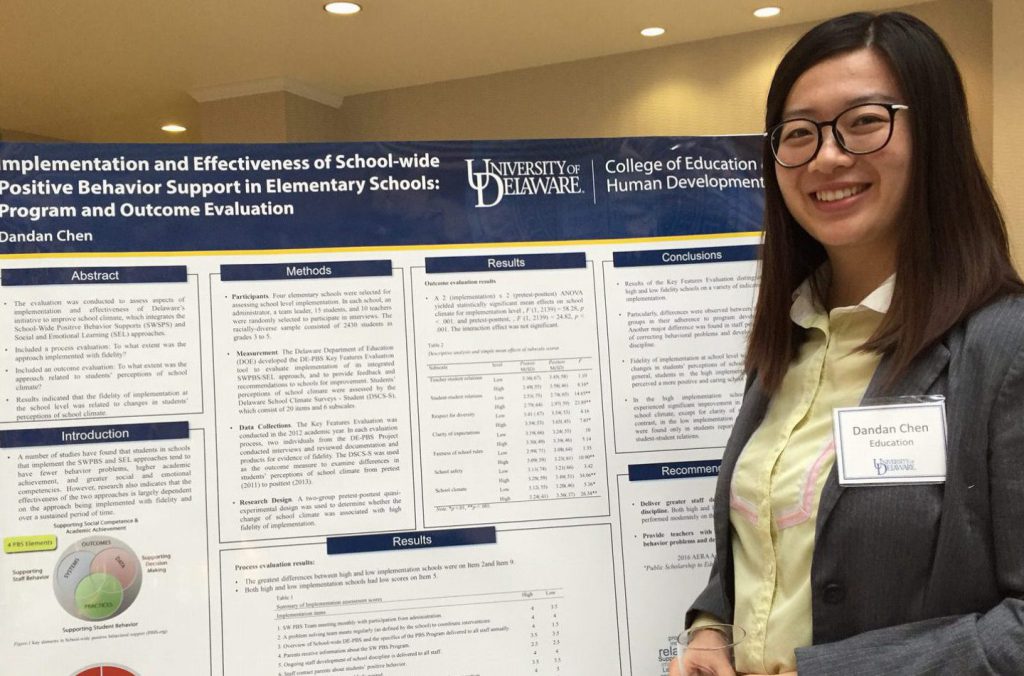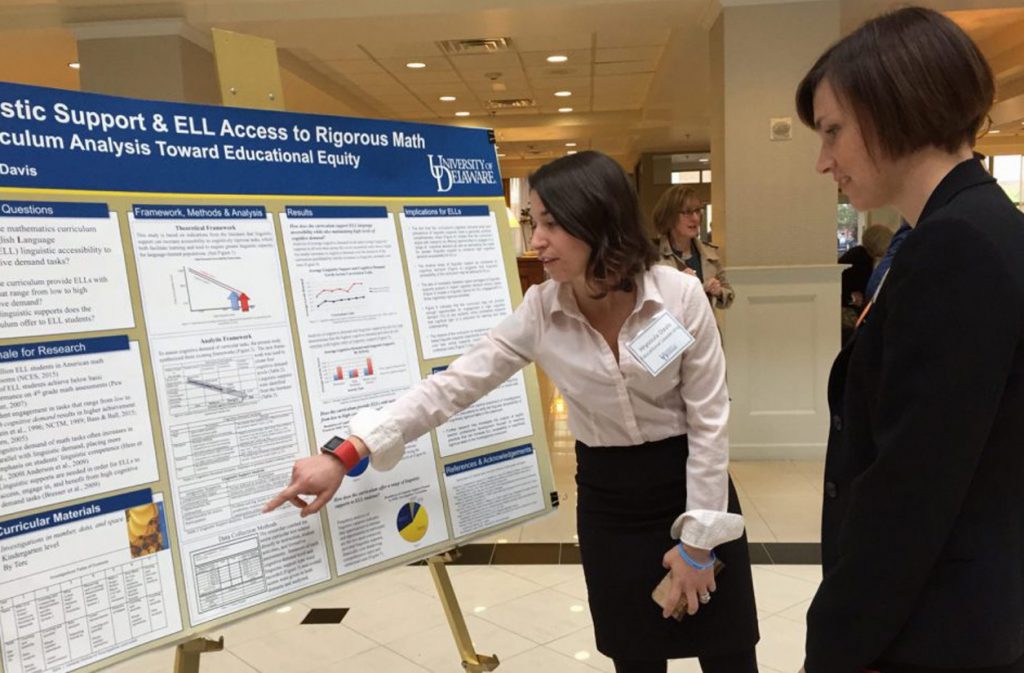School of Education
Doctoral Programs

Make a Difference Through Significant Research
The doctoral programs in UD’s School of Education are designed to help students develop the proficiency to analyze difficult problems, apply the latest methodological and statistical tools to research these problems, and learn how best to share their findings with other researchers and practitioners in the field of education. Students study a range of issues that impact children’s academic, intellectual and social development and educators’ professional development.
We fully recognize the challenges that education faces in this new century. Our students are trained to address these challenges in novel and authoritative ways that influence the educational dialogue around the world. We prepare students to become leaders in the advancement of education through our interdisciplinary course offerings that probe the historical, cultural, developmental and psychological climate of today’s educational system.
Work with Acclaimed Faculty
The University of Delaware is a dynamic Research 1 university, committed to graduate student professional development and the preparation of the next generation of educational scholars.
Our students work with 50+ faculty conducting groundbreaking research in a range of areas. Each year our faculty are awarded millions of dollars in grants from organizations such as the Institute of Education Sciences, the National Institutes of Health, the National Science Foundation and the State of Delaware’s Department of Education to conduct innovative research projects.
Working alongside productive faculty, our students develop research projects to pursue questions that are meaningful to them. Prior to completion of the degree, students receive broad-based analytic training — routinely publishing in academic journals and presenting papers at national and international conferences — gaining valuable methodological and statistical skills that often lead to jobs in their field of expertise.
Follow Your Passion
Our Ph.D. students can follow their passion as they explore problems that are fundamentally significant to schooling in America. With only 20% of children’s time spent in school, and with the advent of electronic devices, we have expanded our research focus to include learning opportunities outside the formal classroom. Students in our Ed.D. program are expected to identify and address a problem that has significance to a local situation.
Learn about the Ph.D. and Ed.D programs

This program prepare scholars whose research will address critical problems in education, develop our understanding of teaching and learning in diverse contexts, and lead to improved outcomes for all learners. This rigorous doctoral program emphasizes high quality educational research utilizing varied methodological approaches and prepares students to assume leadership roles in both academic and non-academic settings.

This program prepares students interested in statistics, psychometrics, education measurement, assessment, and evaluation to develop, critically evaluate, and properly use sophisticated quantitative and mixed methodologies to solve important problems in education. The Ph.D. in Educational Statistics and Research Methods is a STEM-designated degree program.

This program improves the leadership and decision-making capabilities of practitioners in educational organizations. It equips candidates with the knowledge, skills, and tools for effective decision-making and problem-solving related to organizational improvement. Graduates are expected to lead and design solutions across a broad range of K-12, higher education, and educational environments.

Offered through the UD Graduate College, this interdisciplinary program prepares students to address complex education and social policy questions. This program grounds students in an understanding of how education, social and public policy systems work.
The Ph.D. in Education has specialization areas in:

The Learning Sciences is an interdisciplinary specialization area that focuses on the systematic study of learning and teaching, human development, and educational technology as well as the application of research to design educational innovations and interventions.

The focus of the Literacy specialization is on literacy development and instruction with particular attention to students with learning problems, including problems due to disability and to background.

The specialization area of Mathematics Education focuses on examining issues of teaching and learning mathematics. A distinctive feature of this specialization area is the integration of research experiences, including teaching mathematics content and methods courses for prospective K-8 teachers.

The Sociocultural and Community-Based Approaches (SCA) specialization emphasizes the development of expertise in conducting high-quality research on significant issues in sociocultural and community-centered approaches to education.



